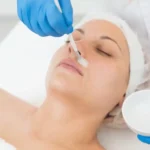THE WHAT? Galderma has announced that it has signed a definitive agreement to acquire Alastin Skincare. Financial terms of the deal were not disclosed.
THE DETAILS Alastin’s premium skin care portfolio is fully incremental to and synergistic with the Galderma’s integrated dermatology platform.
Since it was founded, the specialty aesthetics company has delivered rapid and consistent growth, achieving a CAGR of 106 percent between 2016 and 2020.
THE WHY? Flemming Ornskov, CEO, Galderma, commented, “Galderma’s business consistently delivers strong results and remains at the forefront if this rapidly expanding market, driven by increasing consumer interest and acceptance of aesthetic procedures. The addition of Alastin with its synergistic portfolio and expertise in science-proven skin care, increases our ability to serve the needs of consumers and underscores our commitment to be the partner of choice for aesthetic professionals.
“This transaction will further enhance our premium product offering and providers a tremendous platform for future growth. We look forward to welcoming the Alastin team into Galderma and partnering with them to advance the science of dermatology together.”
Aesthetic medicine products are developed and regulated to meet stringent safety and efficacy standards. They are typically administered by trained healthcare professionals such as dermatologists, plastic surgeons, and specialized nurses in clinical settings. These products aim to provide effective solutions for cosmetic enhancement, skin rejuvenation, and overall aesthetic improvement, contributing to both physical appearance and self-confidence.
Key categories of aesthetic medicine products include:
-
Injectables: This category includes products such as dermal fillers, botulinum toxins (e.g., Botox), and collagen stimulators. These injectables are used to smooth wrinkles, add volume, and improve facial contours.
-
Skin Rejuvenation Treatments: Products like chemical peels, microdermabrasion systems, and laser devices are used to improve skin texture, reduce pigmentation irregularities, and enhance overall skin tone.
-
Skincare Products: These include medical-grade cleansers, moisturizers, serums, and topical treatments containing active ingredients like retinoids, antioxidants, and growth factors. They are formulated to address specific skin concerns such as acne, aging, and hyperpigmentation.
-
Hair Restoration Products: Medical treatments and products designed to promote hair growth and treat conditions such as male and female pattern baldness.
-
Body Contouring and Fat Reduction: Devices and products used for non-surgical body sculpting, such as cryolipolysis (cool sculpting) devices and injectable lipolytics.
-
Cosmeceuticals: High-performance skincare products that bridge the gap between cosmetics and pharmaceuticals, often containing potent ingredients with proven clinical benefits.
-
Wound Care and Scar Management: Products like silicone sheets, gels, and advanced wound dressings used to improve healing and reduce the appearance of scars.





